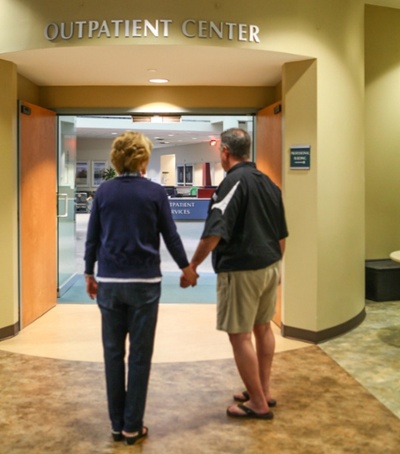How to Prepare for Knee Replacement Surgery
If you and your surgeon have decided that knee replacement surgery is right for you, you are not alone – surgeons perform over 650,000 knee replacements each year, according to the Centers for Disease Control and Prevention (CDC). After performing millions of these procedures over the years, health professionals have come up with suggestions on what you can do prior to surgery to get the most out of your knee replacement.
Talk to your doctor
Learn about the hospital admission process before preparing for knee replacement surgery. Ask how long you should expect to stay in the hospital. Schedule any preliminary tests, such as blood tests and x-rays, well ahead of your procedure.
Find out what type of anesthesia you will receive. Talk with your doctor about any concerns you may have about anesthesia.
Talk about the type of implant you will receive. Ask if there are any special considerations, complications and benefits associated with that implant. Determine how long recovery should take and how much pain you should expect during recovery.
If you are a candidate for a Conformis customized knee replacements, your surgeon will require you to get a CT (computed tomography) scan. This scan is crucial to the design process of your customized knee implant and a personalized pre-operative planning guide for your surgeon.
Gather Personal and Medical Information
Assemble your personal and medical information in one place. This will save you time, as many parties will likely ask for your medical history, medication lists, insurance coverage and other information several times during your care.
Designate a primary caregiver to be there with you on your day of surgery. This person can help carry your belongings and keep in touch with your friends and family members.
Get in Shape for Surgery
Losing weight can reduce the stress on your new knee. Additionally, you should cut down on smoking or quit entirely. Smoking increases your risk for heart attacks, blood clots, pneumonia, respiratory failure, and even death after surgery, according to the International Anesthesia Research Society.
Strengthen your upper body before surgery to make it easier if you need to use crutches or a walker after surgery. Ask your doctor if there are any safe exercises that you can do to strengthen the muscles of your legs before surgery, such as leg raises or knee bends. Isometric exercises can keep your leg muscles strong; however, do not perform any knee exercises without first discussing them with your surgeon.
Ask about the exercises that you will need to perform after surgery. Familiarizing yourself with the exercises before your surgery will make them easier to perform later. Not everyone needs physical therapy, but your surgeon may prescribe exercises to optimize your recovery and strengthen your knee.
Prepare for your homecoming
Arrange for someone to drive you home. If you live alone, ask a friend or family member to stay with you for a few days. If you will be discharged to a skilled nursing facility, your surgeon’s office can suggest appropriate facilities in your area.
Stock up on ready-made food or prepare and freeze 1-2 week’s worth of food. Treat yourself to your favorite nutritious dishes, but try to avoid overeating.
Performing these steps before knee replacement surgery can optimize the results of your procedure. Ask your doctor for more ideas on what you can do in preparing for knee replacement surgery.
To locate a surgeon performing Conformis knee replacements in your area, visit our Surgeon Locator.

Related Posts



